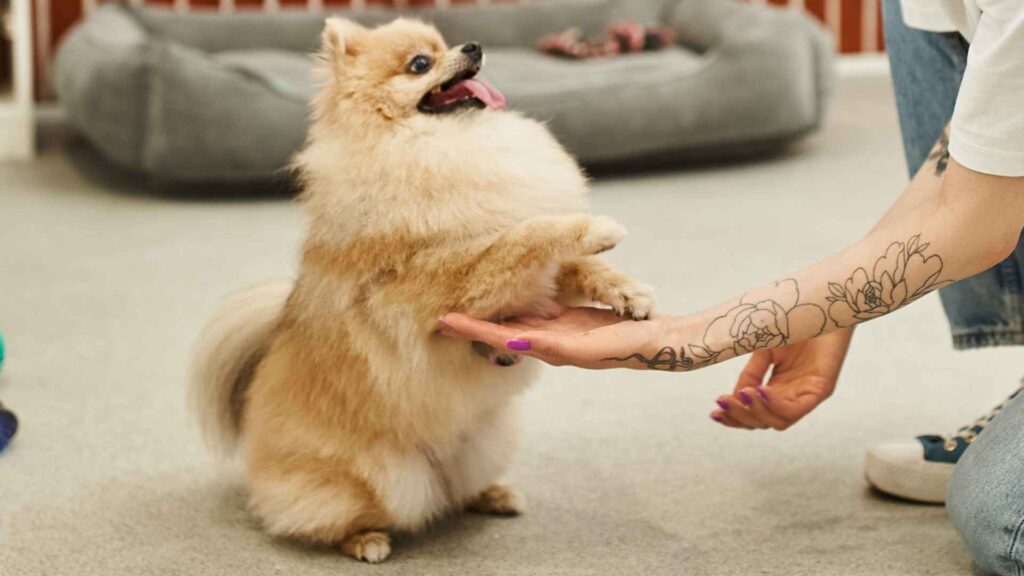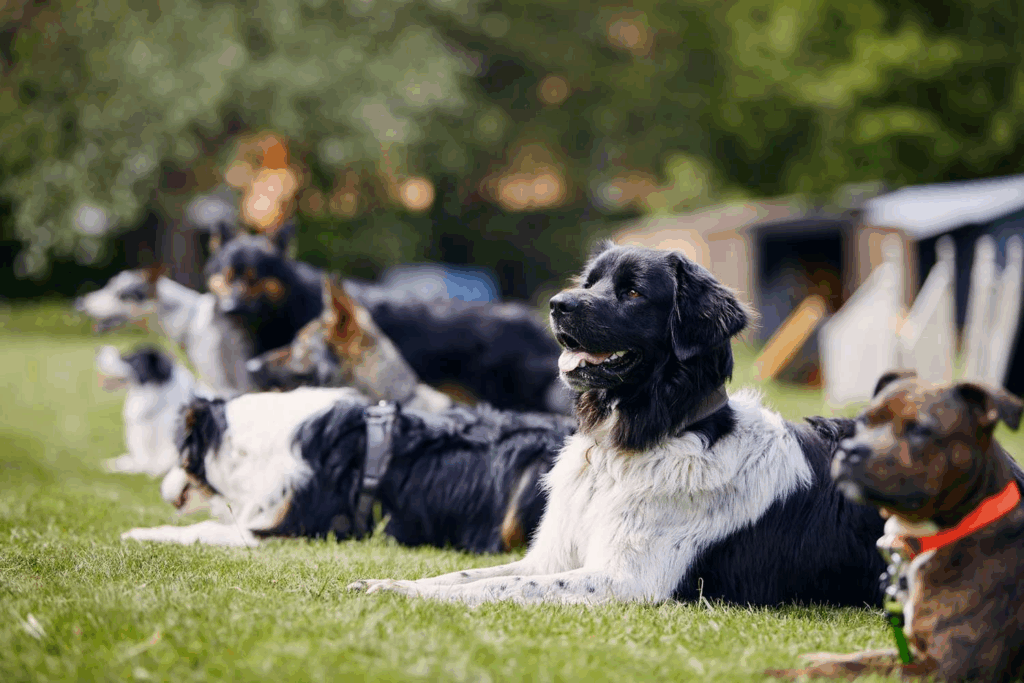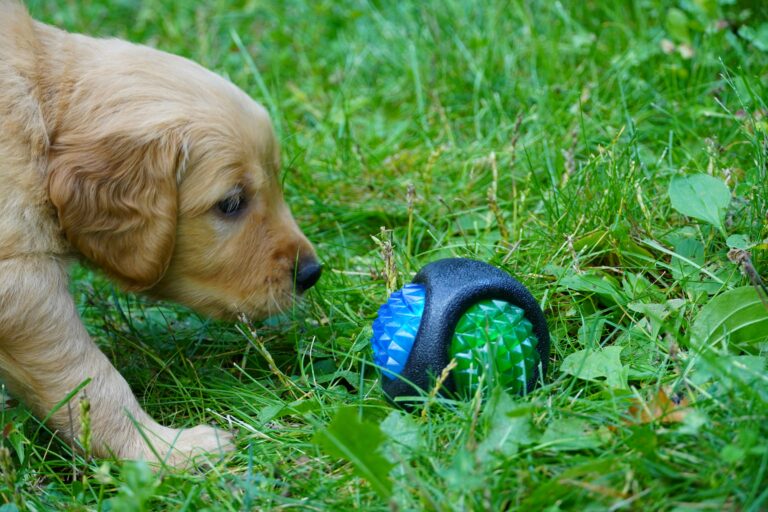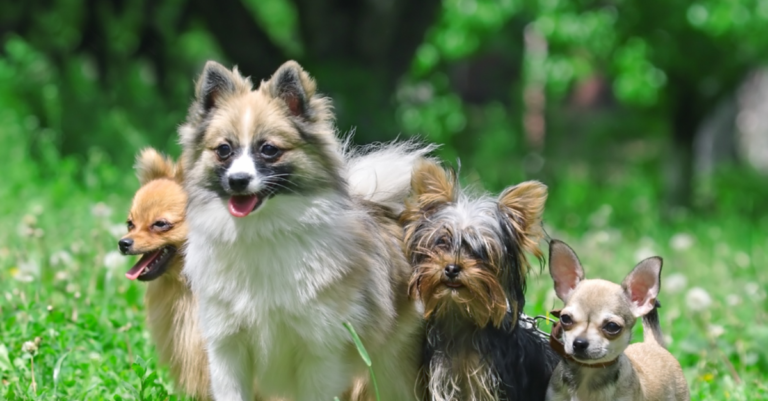Discover a world of training opportunities designed specifically for the pint-sized canines in your life with “Tiny Tails, Big Benefits: Unlocking the Value of Puppy Training Classes for Small Breeds”.
In this in-depth discussion, we delve into the importance and benefits of specialized puppy training classes for small breeds. You’ll gain a deeper understanding of why these classes are essential for your tiny companions and how they can contribute to their overall health, happiness, and well-being. 🐾

From enhancing communication between you and your small breed dog to fostering good behavior, puppy training classes offer a myriad of advantages. Yet, their value extends even further, encompassing mental stimulation, socialization, and the prevention of potential behavioral problems. Rest assured, this isn’t just another generic training guide. This is about unlocking a treasure chest of benefits specifically for your petite pooch. 🐕🦺
Stay tuned as we unveil the various aspects of small breed puppy training, the differences in training small breeds versus larger ones, and the rewards that await both you and your furry friend at the end of this journey. We assure you, it’s much more than meets the eye. Let’s embark on this enlightening exploration together, where every small step counts towards a big leap in your puppy’s development. 🐶💖
Understanding the Importance of Training for Small Breed Puppies
The foundation of effective puppy training rests on understanding the unique needs of small breed dogs. Unlike their larger counterparts, small breeds often require specialized attention due to their distinct physiological and psychological characteristics. Particularly, small breeds can develop stubbornness and tend to be more difficult to housebreak, which necessitates a unique approach to training.
Small breeds may also be more susceptible to developing certain behavioral issues, such as Small Dog Syndrome. This condition, while not officially recognized in the veterinary field, is a behavioral pattern where small dogs exhibit traits of dominant and aggressive behavior. This may stem from the dog feeling the need to compensate for their small size, or from owners treating their small dogs differently compared to larger dogs.
Addressing the Fear Factor
One common trait among small breed dogs is a high level of fear and anxiety. This is often due to their small stature making the world around them seem more intimidating. Training classes can help to alleviate these fears by providing a controlled environment where the dog can interact with various stimuli in a safe and positive manner.
The Value of Puppy Training Classes
Puppy training classes offer numerous benefits for small breed dogs. These classes provide a structured environment where puppies can learn basic commands, socialize with other dogs, and build confidence. Additionally, training classes can help to correct potential behavioral issues early on, making for a more well-behaved adult dog.

Building Confidence and Social Skills
One of the primary benefits of puppy training classes is the opportunity for socialization. Small breed dogs can often be shy or fearful, and exposure to a variety of dogs and people in a controlled setting can help them build confidence. Additionally, these classes provide a great opportunity for puppies to learn how to behave around other dogs, which can prevent potential aggression or fear-based reactions in the future.
Teaching Basic Commands and Behaviors
Puppy training classes also teach basic commands and behaviors. This not only provides a strong foundation for future training but also helps to establish clear communication between you and your puppy. From simple commands like “sit” and “stay” to more complex behaviors like leash walking, these skills are critical for a well-behaved dog.
Choosing the Right Training Class
When it comes to choosing a training class, it is essential to select one that caters to the unique needs of small breed dogs. Look for classes that utilize positive reinforcement methods, as these are typically most effective for small breeds. Positive reinforcement not only encourages your puppy to learn but also fosters a trusting and enjoyable relationship between you and your pet.
Training methods that involve harsh corrections or punitive measures can be particularly detrimental to small breeds, which may be more sensitive both physically and emotionally. Therefore, ensuring that the class emphasizes rewards for good behavior rather than punishment for mistakes is crucial for creating a positive learning environment.
Another factor to consider is the experience and qualifications of the trainer. Trainers who specialize in small breeds or have extensive experience working with them will be better equipped to handle their unique needs and personalities. Asking for references, reading reviews, or observing a class before enrolling your puppy can give you valuable insights into the program’s suitability.
Small Group Classes
Small group classes can be particularly beneficial for small breed puppies. These classes typically have fewer dogs, which can make for a less intimidating environment for your puppy. A lower number of participants ensures that the trainer can give more personalized attention to each dog, addressing specific issues and adapting the training style to suit different learning speeds and temperaments.
In smaller groups, puppies have a better chance of forming positive social relationships. They can interact safely without being overwhelmed by larger, more boisterous dogs, which can sometimes happen in general puppy classes. These early positive social experiences lay the groundwork for healthy social behaviors in adulthood.
Additionally, small group classes allow trainers to tailor exercises to accommodate the physical limitations and specific challenges of small breed puppies. Activities that promote balance, coordination, and gentle social interactions are often emphasized, helping your puppy build confidence in a safe and supportive setting.
Private Lessons
If your small breed puppy is particularly shy or fearful, you might consider private lessons. These classes offer one-on-one attention from a trainer, allowing for more personalized training. This individualized approach can be especially beneficial for addressing specific behavioral issues or fears that might not be adequately addressed in a group setting.
Private lessons also allow you to work on customized goals, whether that means basic obedience, confidence building, leash walking, or even preparing for therapy dog certification. The flexibility to progress at your puppy’s unique pace ensures a more comfortable and effective learning experience.
Private sessions can also take place in a variety of environments—your home, a quiet park, or even pet-friendly stores—offering real-world practice in different settings. This exposure helps to generalize good behavior across various situations and environments.
For owners who have busy schedules, private lessons can often be more conveniently arranged than fixed group classes, making it easier to fit consistent training into your routine.
Maximizing the Benefits of Puppy Training Classes
To get the most out of puppy training classes, it is important to practice the skills learned in class at home. Regular practice reinforces the behaviors taught in class, leading to a well-behaved and confident adult dog. Consistency in applying training principles outside the classroom ensures that your puppy understands that the rules apply everywhere, not just during training sessions.
Integrating short training exercises into daily routines makes practice feel natural and less like a chore. Asking for a “sit” before meals, practicing “stay” at doorways, or using “come” during playtime are simple ways to reinforce good manners throughout the day.
Consistency is Key
One of the most important aspects of training is consistency. This means using the same commands and rewards each time a behavior is performed correctly. Consistency helps your puppy understand what is expected of them, leading to faster learning and better behavior.
It is also essential that everyone in the household uses the same training methods and vocabulary. Mixed signals can confuse a puppy and slow down their progress. Establishing clear guidelines and ensuring that all family members follow them helps your puppy learn faster and with less stress.
Creating a consistent daily routine, including set times for feeding, potty breaks, play, and training, helps a puppy feel secure and confident. Predictability reduces anxiety and makes it easier for them to focus and succeed during training.
Positive Reinforcement
Positive reinforcement, such as treats, praise, or play, should be used to reward good behavior. This encourages your puppy to repeat the behavior in the future.
Use a specific command word and reward immediately after the behavior is performed. The immediacy of the reward is critical because puppies learn by associating actions with outcomes. Delayed rewards can confuse the puppy about which behavior earned the praise or treat.
Keep training sessions short and fun. Puppies have short attention spans, so multiple short sessions throughout the day are more effective than one long session. Ending sessions on a positive note, with a game or a favorite toy, leaves the puppy eager for the next opportunity to learn.
Patience is crucial. Remember, your puppy is learning a new language. It will take time for them to fully understand what is expected of them. Avoid frustration, and always celebrate small achievements, even if they seem minor. Every step forward builds confidence and strengthens your bond.
Engaging in Regular Socialization
Continued socialization outside of class is also important for a well-rounded and confident dog. Regular exposure to a variety of environments, people, and other dogs can help reinforce the social skills learned in class.
Take your puppy on car rides, visits to dog-friendly stores, parks, or simply walks through different neighborhoods. Introduce them to different surfaces such as grass, gravel, tile, and sand. Expose them gently to sounds like traffic, vacuum cleaners, and children playing.
Socialization should be positive and gradual. Avoid overwhelming your puppy with too many new experiences at once. Allow them to explore at their own pace and offer treats and praise to reward curiosity and calm behavior.
The goal is to help your puppy learn that the world is a safe and exciting place, full of wonderful experiences and friendly faces. Proper socialization greatly reduces the likelihood of fear-based behavioral problems later in life.
Building Lifelong Skills
Puppy training classes are not just about teaching your dog to sit or stay; they are about instilling a lifelong foundation of trust, communication, and cooperation. The skills learned in these early months will continue to influence your dog’s behavior and your relationship for years to come.
Investing the time and effort into proper training now pays off enormously in the future. A well-socialized, well-mannered dog is more welcome in public places, more enjoyable to live with, and less likely to develop behavioral issues that require intervention.
By taking a proactive approach to your puppy’s education, you set them up for a happy, healthy, and harmonious life by your side.an help your small breed puppy grow into a confident and well-behaved adult dog.
Conclusion
In conclusion, puppy training classes are incredibly beneficial, particularly for small breeds like those in the Tiny Tails category. Investing in these classes can yield immense rewards, from improved behavior to strengthened bonds between the pet and its owner. Training does not just address behavioral issues, it also enhances a dog’s mental stimulation, socialization skills, and overall well-being. For small breeds, which can often be underestimated due to their size, these classes can be a true game-changer.
The importance of professional trainers in this process cannot be overstated. Their expertise and guidance can make the training process smoother, more effective, and even enjoyable for both the dog and the owner. They are equipped to recognize subtle behavioral signs that owners might miss and can adjust training techniques accordingly. It’s essential to remember that each dog is unique and will progress at its own pace. Patience, consistency, and a positive attitude are key ingredients for success.
Moreover, the environment provided by puppy training classes offers puppies the chance to experience structured socialization in a safe and controlled manner. This early exposure can shape a puppy’s confidence for life, preventing fearfulness and aggression that can arise from poor early experiences.
Finally, the value unlocked through these training classes extends beyond the tangible benefits. The increased understanding and communication between owner and pet, the trust that is built, and the positive behavioral changes all contribute to a more harmonious and fulfilling pet ownership experience. A well-trained dog leads to a happier home, fewer frustrations, and countless shared adventures. So, whether you are a new pet owner or an experienced one, consider puppy training classes as an investment in a happier, healthier, and more rewarding relationship with your small breed dog. Truly, these Tiny Tails come with big benefits that last a lifetime.



